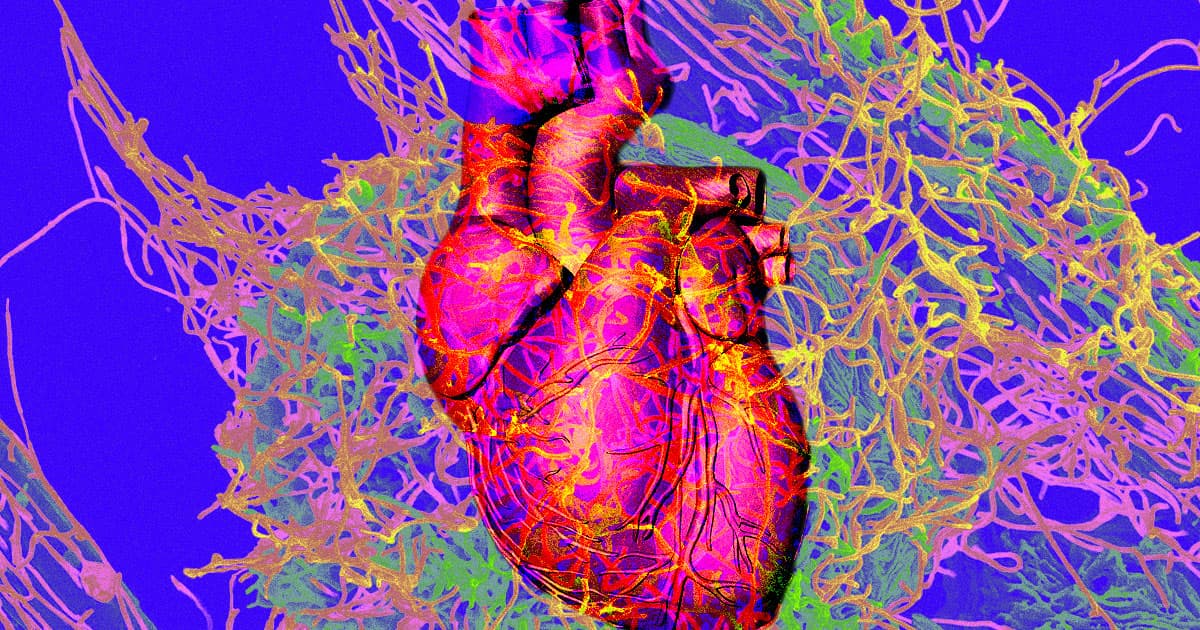A recent study by Chinese researchers found that as many as one in five COVID-19 patients experienced cardiac damage, heart failure — and, in some instances, death.
Out of 416 hospitalized patients, 19 percent showed signs of heart damage. About half of those with heart damage succumbed to the disease while only 4.5 percent of those without didn't.
A report by Italian physicians found similarly serious cardiac issues associated with the coronavirus outbreak. An "otherwise healthy 53-year-old patient" developed myocarditis, a serious inflammation in the heart, just a week after experiencing fever and a dry cough due to COVID-19.
In one instance, as The New York Times reports, a 64-year-old patient in Brooklyn was rushed in to be treated for a blocked artery. But as it turns out, it wasn't a heart attack — it was the coronavirus.
We already knew that COVID-19 patients' lungs were affected by the SARS-CoV-2 virus. The focus has largely been on respiratory problems, with reports of a shortage of ventilators in the US making headlines for weeks now.
"We were thinking lungs, lungs, lungs — with us in a supportive role," John Rumsfeld, chief science and quality officer at the American College of Cardiology, told the Times. "Then all of a sudden we began to hear about potential direct impact on the heart."
The trend has puzzled cardiologists, who are racing to figure out if existing prognosis and treatment methods for COVID-19 have to be adjusted.
"It’s extremely important to answer the question: Is their heart being affected by the virus and can we do something about it?" Ulrich Jorde, heart specialist at the Montefiore Health System in New York City, told Scientific American. "This may save many lives in the end."
What still isn't clear however, is a matter of correlation or causation: are the ensuing heart problems simply a byproduct of the body's reaction to the virus — we know that in severe instances, pneumonia can lead to heart failure — or are the problems directly caused by the virus itself?
And then there's the propensity for those with preexisting heart conditions to be more vulnerable.
"Overall, injury to heart muscle can happen in any patient with or without heart disease, but the risk is higher in those who already have heart disease," Mohammad Madjid, assistant professor of cardiology at McGovern Medical School at UTHealth and lead author of a recent paper studying the relationship between COVID-19 and cardiovascular disease, told Science Daily.
The scientists have several guesses as what the connection between the virus and heart inflammation could be. Excessive levels of chemicals called cytokines could cause inflation in both lungs and the heart, caused by an immune system going haywire, as the NYT reports.
It could also have to do with exposure higher viral loads, according to Scientific American, meaning certain patients have to cope with higher total amounts of a virus inside of them.
Testing patients to reveal the connection is proving to be difficult. Hospitals don't have the resources or time to use electrocardiograms on COVID-19 patients, particularly since most if not all of them are put in isolation. But figuring out the connection could be key to successfully fighting the pandemic.
"We have to assume, maybe, that the virus affects the heart directly,” Jorde told SA. "But it’s essential to find out."
Share This Article

READ MORE: Heart Damage in COVID Patients Puzzles Doctors [Scientific American]

More on COVID-19: Volunteers Start Taking Another Experimental Coronavirus Vaccine
